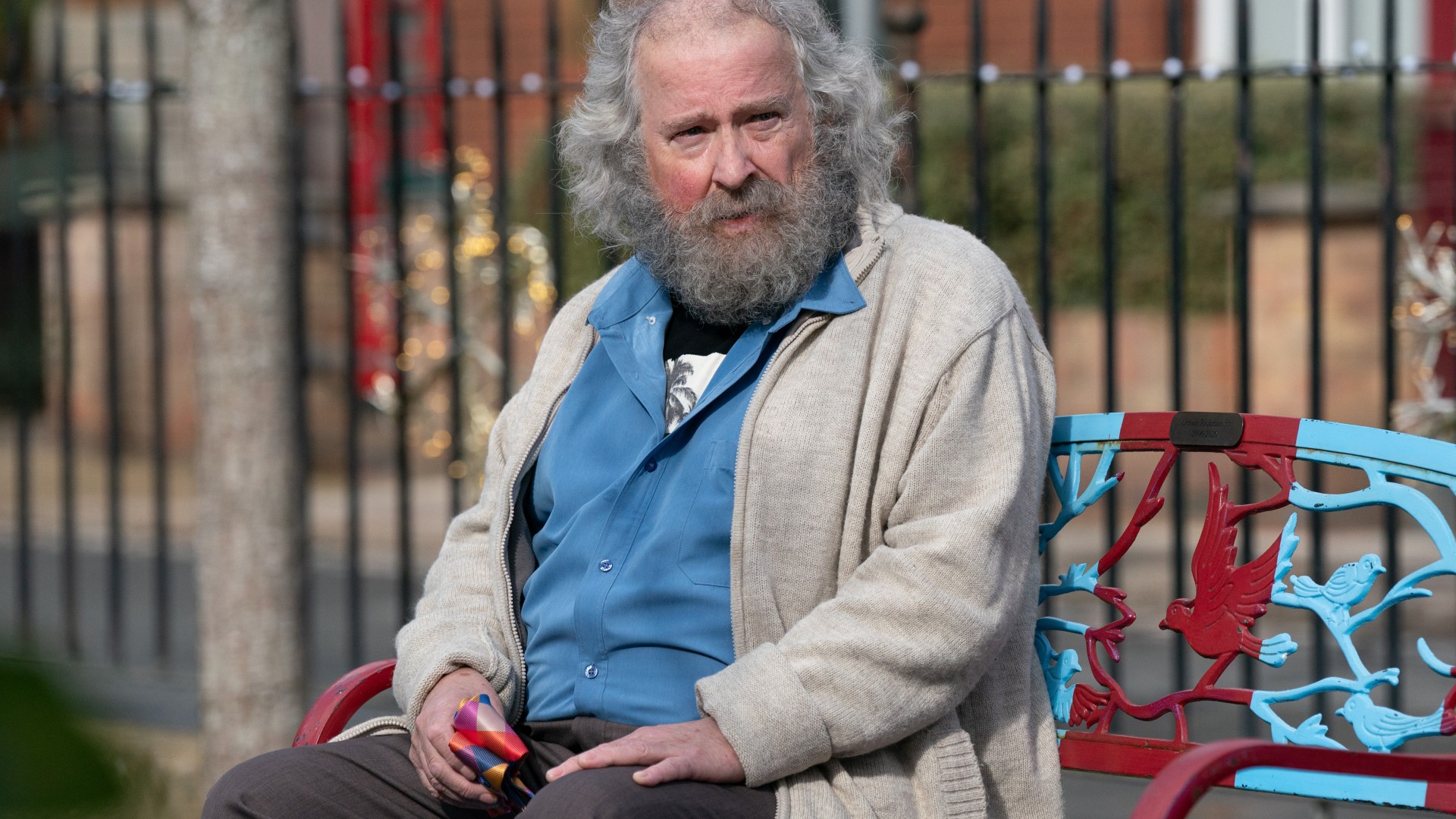AS there’s currently no cure for dementia, experts recommend focusing on ways to reduce your risk of developing the disease.
Some of these include:
1. AVOID BINGEING BOXSETS
There is nothing better to do on a slow weekend than binge episodes of your favourite show — but don’t do it for too long
A 2018 study from biomedical database UK Biobank found people who watched more than four hours at a time were 24 per cent more likely to develop dementia, due to it being a “passive activity”.
Instead, they recommended spending an hour surfing the web, due to it being a “higher cognitive task”.
2. DO CROSSWORDS (WITH YOUR OTHER HAND)
Wordy activities like doing a crossword can help reduce your chance of dementia by up to nine per cent.
A team from Monash University, in Australia, said the words-based pastime, puzzles and card games help by “stimulating the growth of neurons and synapses”.
It may seem odd, but trying to do writing tasks, like crosswords, with your non-dominant hand could help too.
Neuroscientist Dr Rahul Jandial previously told the Sun it helps by “building brain connections”, which keeps you sharp.
3. BE A SOCIAL BUTTERFLY
In case you need an excuse to meet up with friends or family members, it turns out that staying social can support brain health.
Research from University College London found meeting new people, and increasing time spent socialising can help delay the onset of the condition, reducing risk by between 30 and 50 per cent.
Meanwhile, separate studies have found loneliness, depression, and isolation – all linked to not socialising enough – increase the chances of dementia.
4. GO MEDITERRANEAN
High salt consumption has been linked to both heart disease and dementia.
Up to 75 per cent of the salt we consume is found in processed food and items eaten away from the home.
The Alzheimer’s Society recommends sticking to a Mediterranean diet, which could reduce dementia risk by 23 per cent.
It consists of a high consumption of fruit, vegetables and whole grains, a moderate intake of oily fish and dairy, and a low intake of meat, sugar and saturated fats.
5. LOSE WEIGHT
Shedding the pounds can also help reduce your chances of the debilitating disease.
A UK study, published in 2020 found that being overweight between the ages of 35 and 65 has been found to increase the risk of dementia by up to 30 per cent.
If you are considered overweight or obese, losing between five and ten per cent of your excess weight can reduce your risk.
Find out if you are overweight by taking the NHS test.
Visit the NHS website for weight loss plans or talk to your GP for advice.
6. TAKE 2P VITAMIN
Multivitamins that cost as little as 2p could stave off Alzheimer’s, a study shows.
Experts at Mass General Brigham in the US found people who take the tablets every day have slower brain ageing and less memory loss.
They said the improvement was similar to being two years younger.
7. HAVE MORE SEX
Getting it on in the bedroom can help protect against dementia by increasing blood flow to the brain, research shows.
The quality of sex and climax was most closely linked to mental sharpness in 62- to 74-year-olds, experts found.
Over-75s, on the other hand, benefited most from romps at least once a week.
Prof Shannon Shen, of Hope College, Michigan, said: “Sex is physical exercise and exercise is linked to better cognitive performance by increasing the blood flow in the brain.”
8. DRINK MORE COFFEE
There is arguably nothing better than a cup of old Joe first thing in the morning to help you get up and out.
And now, we have even more reason to grab a mug of the good stuff.
Scientists have found that coffee could help prevent a cause of Alzheimer’s building up.
Espresso may stop proteins that are linked to the disease from tangling in the brain, the study published in the Journal of Agricultural and Food Chemistry found.
The drink rendered the protein clumps non-toxic to brain cells, making them less likely to lead to dementia, they said.
9. DANCE
Having a boogie has also been shown to be an effective way of protecting yourself against the memory loss condition.
Not only does it offer a fun way of exercising, but remembering steps and the social element also help stimulate the brain.
One study, published in the Journal of Aging and Physical Activity, found older adults who did six months of ballroom dancing saw better outcomes than those walking on treadmills.
Dr Helena Blumen, of the Albert Einstein College of Medicine, said: “Social dancing generated greater improvements on cognitive tests than treadmill walking.”
10. USE VIAGRA
Men who take Viagra may have up to a 54 per cent lower risk of Alzheimer’s disease, a study suggests.
Scientists from University College London found men who pop sex-boosting drugs like Viagra and Cialis were 18 per cent less likely to develop the brain-eating disease compared with those who went without the drugs.
The pills work by widening blood vessels to improve blood flow to the penis – and could also boost circulation to the brain.
This is not to say people should start taking Viagra to prevent dementia.
You should speak to your doctor before taking Viagra to make sure it’s safe for you.
Viagra can cause adverse reactions in people with certain health conditions or who take certain medicines.
11. WALK
Something as simple as getting out and walking more could cut your risk of developing dementia.
According to Claire Steves, a professor of ageing and health at King’s College London, going for a stroll just a handful of times a week can make a big difference.
Speaking to Jonathan Wolf on an episode of the ZOE podcast, Prof Steves said exercising was “key” to improving your cognitive health.
“I tell all my patients to make sure they’re physically active at least three times a week, and they’re going out every day,” she said.
“To improve your cognitive health, you need to do more exercise than you’re doing now.”
Unless, of course, “you’re an Olympic athlete”, she added.
12. LOOK AFTER YOUR TEETH
Looking after your pearly whites is always important – especially now that oral and brain health have been closely linked.
A new Taiwanese study found that those with chronic gum disease for more than a decade were 1.7 times more likely to be at risk of developing Alzheimer’s disease.
Gum disease is caused by a buildup of plaque on the teeth and gums.
You can remove this plaque by brushing and flossing your teeth regularly.
Scientists have even found evidence of plaque lodged in the brains of people who died with Alzheimer’s.
Experts believe the toxins could travel from the blood to the brain, where they cause long-term damage over time.
13. PROTECT YOUR SENSES
It’s natural for our senses, such as vision hearing and smell to decline as we age.
But now, experts have linked a decline to an increased risk of dementia.
Research published in 2023 found that dual impairment in hearing and vision was associated with a higher risk of dementia.
Be sure to stay on top of checkups, wear sunglasses when you’re out in the sunshine and take regular breaks from headphones.
Some research has found that smell training in older adults can help; try smelling various different scents every day for several weeks.
These can include cloves, lemon and cinnamon.
14. GET LOTS OF SLEEP
Sleep is vital for overall good health.
It’s not just the hours you get – to really show your brain some love and keep it sharp, you need to be getting good quality sleep for at least seven hours.
A lack of sleep can cut your ability to learn new things and take on new information by 40 per cent according to US research.
Other studies have found that even one night of sleep deprivation can increase the amount of beta-amyloid in the brain, which is associated with Alzheimer’s disease.




